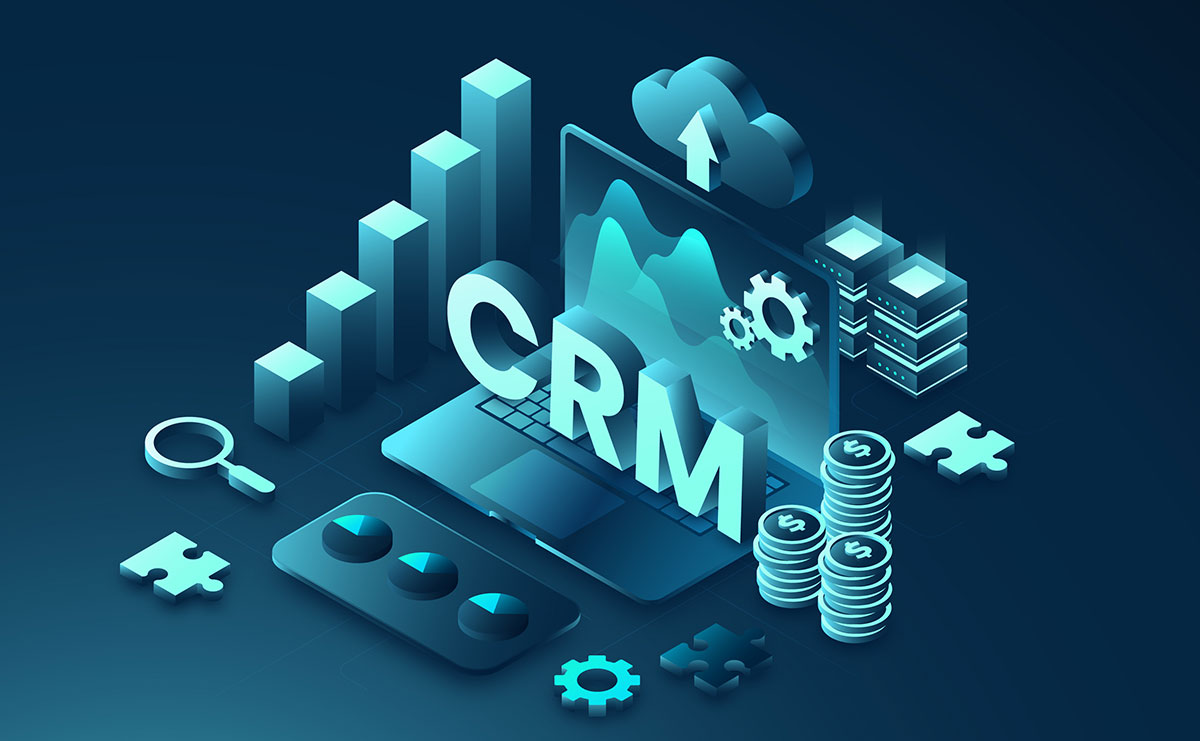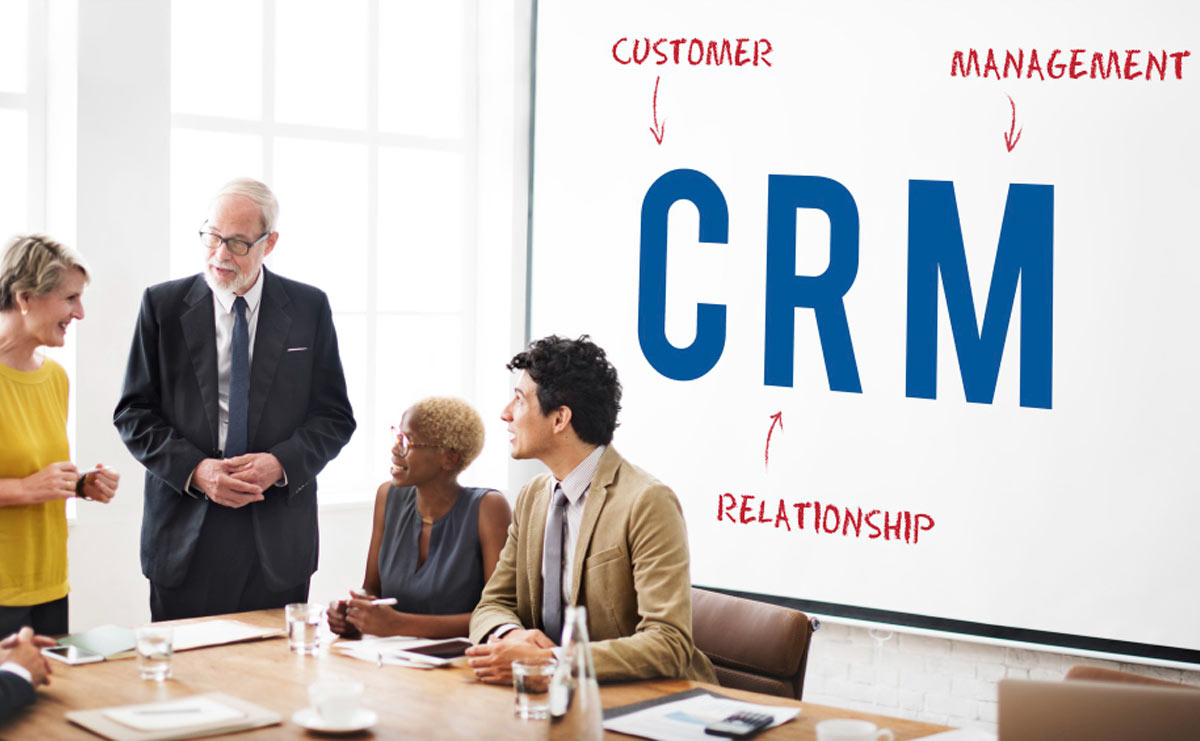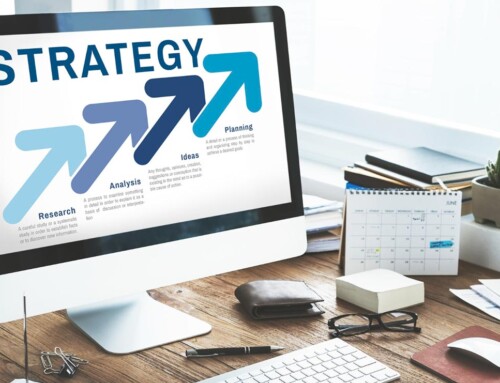Contents
Top 8 Legal CRM Solutions for Law Firms in 2025
By 2025, the legal profession is evolving fast with greater demand for more effective client and case management software. The choice of the ideal CRM for law firms is essential to ensure the continuity of efficient operations and to upgrade the standard of client service provided. Legal CRM software is developed to facilitate communication, automate, and integrate vital client information. Such systems not only increase productivity but also maintain industry standards and data protection measures. A good legal CRM enables law firms to adapt to client needs and remain competitive within a fast-changing marketplace.
Why Legal CRM Is Essential in 2025
I. Evolving Client Expectations in Law Firms
Legal clients in 2025 expect a level of responsiveness, transparency, and efficiency that mirrors the service standards of other professional industries. They demand seamless communication, real-time updates, and consistent engagement throughout the lifecycle of their legal matters. To meet these expectations, law firms must adopt advanced tools that enable continuous client interaction and data-driven decision-making. Legal CRM platforms serve as the foundation for fulfilling these evolving needs by ensuring that no communication is missed and every client interaction is recorded and analyzed.
II. The Competitive Edge of Legal CRM
In a market characterized by increasing competition, adopting a legal CRM provides a measurable advantage. It allows firms to differentiate themselves by offering superior service delivery, quicker response times, and customized client experiences. With the ability to track and manage every facet of client relationships, a legal CRM ensures that law firms can maintain personalized services even at scale. The competitive edge comes not only from internal efficiency but also from the ability to generate actionable insights from client data, enhancing strategic decision-making.
III. Integration with Modern Legal Practices
Modern law practices are highly dependent on the seamless integration of technology into daily workflows. From case management and billing to document automation and marketing, digital tools must work cohesively to reduce manual input and improve accuracy. The best CRM for law firms supports this integration by acting as a centralized system that connects various operational functions. It minimizes redundancy, ensures consistency across platforms, and enables practitioners to focus more on client service and legal strategy rather than administrative tasks.
By adopting comprehensive legal CRM solutions, firms position themselves to respond effectively to industry trends, regulatory changes, and client demands. As legal practice becomes increasingly data-driven, leveraging these systems is no longer optional—it is essential for sustained growth and service excellence.

What Is a Legal CRM?
I. Definition and Core Purpose
A legal CRM like RunSensible is a specialized client relationship management system tailored to meet the unique requirements of legal professionals. Its primary function is to manage and organize client data, track interactions, and facilitate effective communication between attorneys and clients. Unlike generic CRM platforms, legal CRMs incorporate tools specific to the legal industry, such as case tracking, document automation, conflict checks, and matter-specific notes. These features enable legal professionals to enhance efficiency, maintain accurate records, and deliver timely legal services with full visibility into the client lifecycle.
II. Differences Between General and Legal CRM Solutions
General CRMs are designed for broad business use and may lack the specialized features required in a law firm setting. In contrast, legal CRM solutions are developed with the legal profession in mind, offering built-in compliance support, case management capabilities, and integration with legal research and billing systems. While general CRMs might offer scalability and a wide range of customization options, they typically require extensive configuration to support legal workflows. Legal CRM solutions, however, provide an out-of-the-box framework that aligns with how law firms operate, reducing the need for customization and minimizing the risk of non-compliance with legal industry regulations.
III. Common Features in the Best CRM for Law Firms
The best CRM for law firms includes an array of tools designed to enhance productivity and client satisfaction. These typically encompass automated client intake processes, task and deadline tracking, secure document sharing, time and billing integration, and conflict-of-interest screening. In addition, advanced reporting features allow firms to monitor performance metrics, evaluate client engagement, and optimize internal processes. Such comprehensive functionality ensures that attorneys can focus on legal work while administrative tasks are handled systematically and accurately. Ultimately, a purpose-built legal CRM transforms client relationship management into a strategic advantage, positioning law firms for long-term success.
Key Benefits of Using the Best CRM for Law Firms
I. Streamlined Client Intake and Follow-Up
An organized and automated client intake process is crucial for reducing administrative overhead and minimizing human error. A legal CRM enables law firms to collect client information through customizable intake forms, schedule consultations, and follow up automatically with prospective clients. This functionality ensures that no leads are lost due to delayed responses and that each client’s initial experience is both professional and consistent. Automating these early stages of engagement significantly improves conversion rates and operational efficiency.
II. Centralized Communication and Document Handling
Effective communication is at the core of successful legal representation. A centralized system allows attorneys and staff to track all client emails, calls, messages, and documents in one location. This centralization enhances transparency, ensures that all team members are informed, and reduces the risk of miscommunication. Legal CRM solutions often feature secure client portals that facilitate document sharing and messaging, which enhances both convenience and compliance with privacy requirements.
III. Performance Tracking and Reporting
The ability to analyze firm performance is vital for strategic growth and informed decision-making. Legal CRM systems provide reporting tools that track client acquisition metrics, case progress, billing status, and staff productivity. With customizable dashboards, law firms can access real-time data to identify strengths, address inefficiencies, and align operations with business goals. This data-centric approach enables continuous improvement and supports long-term success.
IV. Compliance and Security Advantages
Law firms are responsible for handling sensitive client data, which must be protected in accordance with legal and ethical standards. The best CRM for law firms offers advanced security features such as role-based access, data encryption, and audit trails. These systems are also built to support jurisdictional compliance with regulations such as PIPEDA, GDPR or HIPAA, depending on the nature of the legal work. By utilizing a secure and compliant legal CRM, firms safeguard client trust and reduce the risk of data breaches or legal penalties.
What to Look for in the Best Legal CRM Solutions
I. Case and Matter Management Tools
A primary requirement for any legal CRM is its ability to manage cases and matters efficiently. Law firms must be able to organize all client-related information—including case history, upcoming deadlines, documents, and attorney notes—within a unified interface. Robust matter management functionality allows for the segmentation of tasks and data by legal issues, which simplifies collaboration and enhances visibility across the firm. Legal CRM solutions that provide advanced matter tracking also enable attorneys to stay proactive and ensure that no case-related activity is overlooked.
II. Task Automation and Workflow Efficiency
To reduce manual effort and increase operational throughput, law firms need CRM platforms equipped with task automation capabilities. These include features such as automatic reminders, pre-built workflow templates, and event-triggered actions. With automation in place, attorneys and support staff can focus on substantive legal work rather than repetitive administrative tasks. When evaluating systems, firms should prioritize platforms that allow for workflow customization that is aligned with their internal processes. The best CRM for law firms includes automation that is both intuitive and adaptable to the unique needs of legal professionals.
III. Document and Email Integration Capabilities
Seamless integration with email platforms and document management systems is essential for maintaining a centralized and accessible data environment. Legal CRM platforms should support synchronization with commonly used services such as Microsoft Outlook, Google Workspace, and popular legal document repositories. This integration ensures that emails, attachments, contracts, and pleadings are stored and retrieved without disrupting daily routines. Centralized access to communication and documentation promotes consistency, reduces duplication, and supports collaborative efforts across multiple legal departments.
IV. Scalability and Customization for Law Firms
Law firms vary widely in size, practice area, and operational complexity. Therefore, it is critical to select a legal CRM that offers scalability and customization options. A scalable solution can grow alongside the firm, accommodating new users, additional practice areas, and increased case volume without performance degradation. Moreover, customizable features—such as tailored fields, role-based dashboards, and adjustable workflows—allow the software to align precisely with the firm’s unique structure. Investing in customizable legal CRM solutions ensures long-term compatibility and maximizes return on investment by adapting to both present and future requirements.
Top 8 Legal CRM Tools for Law Firms in 2025
I. RunSensible – CRM for Practice Management, Client Intake, and Email Marketing
RunSensible is an all-in-one legal CRM solution designed specifically for law firms. It simplified client intake, follow-ups, scheduling, and communication while integrating seamlessly with tools like email, calendars, and billing systems. With built-in automation features, secure client communication portals, and insightful analytics, RunSensible enhances productivity and client satisfaction, making it a top choice for forward-thinking law firms.
II. Lawmatics – CRM for Client Intake and Marketing
Lawmatics focuses on automating the client intake process, managing leads, and streamlining marketing activities. Its strengths lie in customizable intake forms, appointment scheduling, and automated follow-up sequences. Law firms benefit from improved client onboarding and consistent branding through email campaigns and drip sequences. Lawmatics is an ideal legal CRM for firms looking to strengthen their front-end engagement and client conversion strategies.
III. PracticePanther – Case Automation Champion
PracticePanther offers a complete suite of features, including legal billing, calendaring, task management, and document automation. The platform is particularly notable for its user-friendly interface and strong automation features, which allow users to eliminate redundant tasks. PracticePanther also supports two-way syncing with calendar and email applications, ensuring full visibility across client interactions. Its performance is consistent across firm sizes, making it one of the best CRM for law firms aiming to increase efficiency without sacrificing usability.
IV. Smokeball – Document-Focused Legal CRM
Smokeball is distinguished by its emphasis on document generation and automatic time tracking. This platform is especially suited for firms with high-volume document workflows, providing access to a large library of legal templates and form tools. Smokeball’s integration with Microsoft Word and Outlook allows users to generate, edit, and manage documents without leaving their existing ecosystem. In addition, its built-in activity tracking ensures that every task is accounted for in billing and reporting.
V. Zoho CRM – Versatile CRM for Legal Teams
While Zoho CRM is not built exclusively for the legal industry, it offers sufficient flexibility to support legal operations when properly configured. Law firms can benefit from its customizable pipelines, AI-powered analytics, and integration capabilities. With modules for lead management, workflow automation, and data reporting, Zoho provides a cost-effective alternative for firms requiring adaptable legal CRM solutions. Its modular structure enables users to activate only the features they require, improving performance and ease of use.
VI. Salesforce – Customizable CRM for Big Firms
Salesforce is a leading global CRM known for its extensive customization options and scalability. It is particularly suited for large law firms with complex needs, allowing tailored workflows, custom reporting, and integration with enterprise-level systems. While it requires more initial configuration than legal-specific platforms, its adaptability makes it a powerful tool for managing client relationships and firm performance. Salesforce supports detailed analytics and automation tools that can elevate strategic decision-making across departments.
VII. HubSpot – Free Legal CRM Starter
HubSpot provides a free CRM option with core functionality that includes contact management, task tracking, and email integration. Though not tailored exclusively to the legal industry, it serves as an entry-level platform for small law firms seeking foundational CRM capabilities. HubSpot’s user-friendly dashboard, simple automation tools, and scalable architecture make it ideal for firms beginning to implement digital client relationship systems. With optional upgrades, it can evolve to meet growing operational demands.
VIII. Law Ruler – End-to-End Legal CRM Solution
Law Ruler is a comprehensive platform offering legal CRM, intake, case management, and billing in a unified solution. It is built specifically for law firms, with features such as text message follow-ups, e-signature collection, and voice call tracking. Law Ruler also supports marketing automation, allowing firms to nurture leads and maintain continuous client engagement. As one of the most feature-rich legal CRM solutions available, it provides an all-in-one infrastructure that aligns with the full client lifecycle.
Comparing the Best CRM for Law Firms
I. Pricing and Features Overview
When evaluating the best CRM for law firms, cost-effectiveness must be considered in relation to functionality. Some platforms, such as HubSpot and Zoho CRM, offer free or low-cost entry-level plans with limited features, which may appeal to small firms with basic needs. Conversely, advanced platforms like Salesforce and Clio require higher investment but provide comprehensive features, including robust automation, secure client portals, and extensive integrations. Pricing structures may vary by user, feature module, or usage volume, necessitating a detailed analysis of licensing models and operational requirements before making a selection. Law firms should also assess hidden costs associated with onboarding, training, and technical support.
II. Strengths and Limitations of Each CRM
Each CRM system offers distinct advantages aligned with different law firm profiles. Clio excels in practice management and legal document automation, while PracticePanther offers user-friendly interfaces with strong automation tools. Lawmatics is well-suited for firms with a focus on client intake and marketing automation. Zoho CRM, while highly flexible, requires legal-specific configuration to match the features provided by legal CRM platforms. Salesforce is extremely powerful for large firms with technical resources but may present implementation complexity for smaller practices. Smokeball is particularly beneficial for document-heavy operations, but its usage may be limited outside of that context. Understanding both the strengths and constraints of each option enables firms to make informed decisions tailored to their practice style.
III. Use Cases for Solo, Mid-Size, and Large Firms
Solo practitioners typically benefit from simplified legal CRM platforms with intuitive interfaces and minimal configuration requirements. Tools like HubSpot and Zoho CRM can be cost-effective starting points for managing client communication and basic workflows. Mid-size firms often require more sophisticated legal CRM solutions that support multi-user collaboration, detailed matter tracking, and integrated billing systems—solutions such as PracticePanther and Lawmatics are well-aligned with this segment. Large law firms demand scalability, customization, and enterprise-grade analytics, making platforms like Salesforce and Clio Enterprise appropriate for their needs. These firms also benefit from CRMs that integrate with legal research tools, human resources systems, and firm-wide analytics dashboards.
By conducting a systematic comparison of available platforms, law firms can select a CRM that not only aligns with their current operational model but also scales with future growth. Each use case must be examined through the lenses of budget, functionality, integration, and ease of use to ensure long-term efficiency and client service excellence.
How to Choose the Right Legal CRM Solution
I. Assessing Your Firm’s Size and Needs
The selection of a legal CRM must begin with a comprehensive evaluation of the law firm’s size, structure, and practice areas. Solo practitioners may require simple platforms that focus on contact management and calendar integrations, while larger firms necessitate advanced functionality including case management, billing, and multi-user collaboration. A firm’s specialization—such as litigation, family law, or corporate practice—can also influence which features are most critical. Legal CRM solutions should be aligned with specific operational workflows and client engagement requirements to ensure that technology adoption results in measurable improvements in efficiency and client satisfaction.
II. Questions to Ask CRM Providers
Before committing to any legal CRM platform, law firms must conduct due diligence by asking key questions during the evaluation phase. Important inquiries include: What data migration support is available? Does the system comply with regional legal data protection regulations? How frequently are updates and security patches applied? What level of customer support is provided? Can the system integrate with existing legal billing, document management, and court calendaring tools? Answers to these questions provide clarity on system limitations, future compatibility, and long-term sustainability. Selecting the best CRM for law firms requires full transparency regarding technical capabilities and provider responsibilities.
III. Testing and Trial Period Recommendations
Utilizing trial periods or demonstration accounts is a critical component of selecting the appropriate CRM. During testing, firms should simulate real workflows, input client data, and evaluate reporting and automation functionalities. The evaluation should include multiple stakeholders—from attorneys to administrative staff—to ensure that the system meets firm-wide expectations and usability standards. Feedback gathered during this phase should inform the final decision. Many providers offer limited-time trials or sandbox environments where firms can explore advanced features and gauge performance before finalizing a subscription. An informed selection process grounded in testing minimizes the risk of implementation setbacks and ensures alignment with business objectives.
By following a methodical approach—assessing internal needs, questioning providers thoroughly, and conducting structured trials—law firms can confidently choose a CRM that will support their long-term growth and operational excellence. Whether the goal is client intake automation, improved document management, or performance analytics, selecting the right legal CRM is a strategic investment in the firm’s future.
Choosing the Right Legal CRM: A Strategic Advantage for 2025
In an increasingly competitive legal landscape, adopting the best CRM for law firms is not merely a technological upgrade—it is a strategic imperative. A well-selected platform enhances client engagement, streamlines internal operations, and ensures compliance with industry standards. As client expectations grow and workflows become more complex, law firms must rely on systems that offer automation, integration, and data-driven insights. Investing in the right solution allows legal professionals to focus on delivering high-quality legal services while minimizing administrative burdens.
Legal CRM solutions tailored to the unique needs of law practices provide a foundation for sustainable growth and competitive positioning. Whether a firm seeks to improve client intake, automate document handling, or centralize communication, the right legal CRM offers the flexibility and scalability required for long-term success. With careful evaluation and a strategic implementation plan, law firms can leverage these powerful tools to elevate their performance and exceed client expectations in 2025 and beyond.
Elevate Your Practice with RunSensible – The Legal CRM Built for Results
Ready to transform your law firm’s operations with the best CRM for law firms? RunSensible is an all-in-one legal CRM solution designed specifically for modern legal professionals. From automated client intake and customizable intake forms to case pipeline management, calendar integration, secure document storage, and e-signature support, RunSensible provides everything you need to streamline your legal practice.
Take control of your workflows, enhance client satisfaction, and ensure compliance—all within a centralized, intuitive platform. Discover why RunSensible is the legal CRM that forward-thinking law firms trust. Start your free trial today and experience the difference purpose-built legal technology can make.
FAQs
1. What is the best CRM for law firms handling multiple practice areas?
The best CRM for law firms managing diverse practice areas should offer customizable workflows, client segmentation, and robust reporting tools. Platforms that allow users to tailor features to specific legal services—such as family law, criminal defense, or corporate litigation—can help streamline operations and maintain clarity across departments.
2. How do legal CRM solutions improve client communication?
Legal CRM solutions centralize all client communications, including emails, calls, and messages, in one platform. This allows legal teams to maintain complete visibility over interactions, set automated follow-ups, and ensure that clients receive timely updates about their cases without missing critical touchpoints.
3. Can a legal CRM integrate with document management systems?
Yes, most modern legal CRM platforms offer integration with document management systems such as Dropbox, Google Drive, and Microsoft OneDrive. This enables law firms to store, retrieve, and share client documents securely while keeping them organized and linked to the appropriate case files.
4. What should small law firms look for in a legal CRM?
Small law firms should prioritize ease of use, affordability, and core features like contact management, intake automation, and task tracking. The legal CRM should also offer scalable options to accommodate growth and include built-in compliance tools to meet professional standards.
5. How does the use of the best CRM for law firms affect compliance and data security?
The best CRM for law firms typically includes features such as role-based access control, end-to-end encryption, and audit trails. These capabilities help firms safeguard sensitive client information, comply with data protection regulations, and reduce the risk of unauthorized access or data breaches.
References
- https://www.geekflare.com/best-legal-crm/
- https://www.webfx.com/industries/legal/law-firms/crm/
- https://crmside.com/best-crm-for-law-firms/
- https://www.lawfuel.com/8-of-the-best-crm-for-law-firms/
- https://www.findmycrm.com/blog/10-best-crm-for-law-firms-reviews-pricing-features-findmycrm
- https://www.contentmavericks.com/best-crm-for-law-firms/
- https://www.rtdynamic.com/blog/the-best-crm-solutions-for-law-firms-in-2025
- https://insidea.com/blog/hubspot/crm-for-law-firms/
Disclaimer: The content provided on this blog is for informational purposes only and does not constitute legal, financial, or professional advice.







